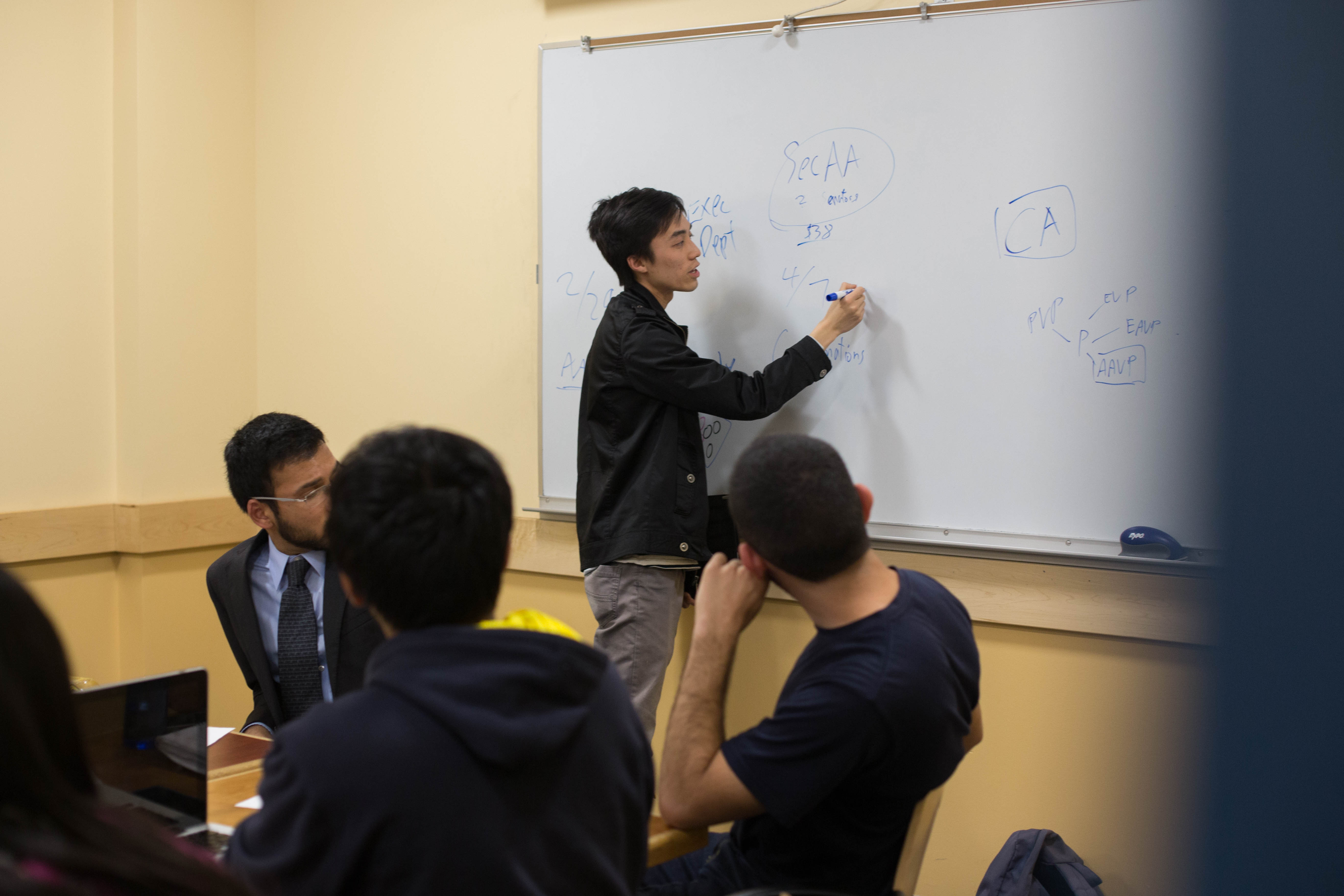
Lee retracts bill amid criticism of altering commission’s intention, creating popularity contests
On Feb. 29, incoming ASUCD President Alex Lee withdrew the first of six bills designed to restructure UC Davis’ student government leadership by establishing a larger executive branch and dissolving the Academic Affairs Commission (AAC).
Lee’s retraction followed criticism that the bill would result in popularity contests and an executive branch-heavy assembly, which some argued detracted from the commission’s original intention of being comprised of students separate from the executive branch.
Lee presented his plan to create a more centralized and coordinated government at UC Davis.
“To ensure ASUCD is truly run by students for students, we must empower the chief decision makers of ASUCD with a better executive branch. By creating a more robust executive branch, we strive to establish a central authority to manage our diverse association,” Lee wrote in his outline of the bill. “The goal of these changes will be effectively managing the core issue areas and operations of ASUCD that the presidency is vested with.”
The executive branch under Lee’s proposal would have included a cabinet-style government, in which separate secretaries — appointed by the president with approval by the senate — would have worked as chief advisors representing their specific departments, including a Department of Academic Affairs, a replacement for AAC.
The Department of Academic Affairs would have comprised of an assembly, made up of 13 elected members representing the different colleges, or districts, at the university.
Several critics worried that by transforming AAC into an elected assembly, commissioners would be elected based off of popularity rather than qualifications. Critics also argued that the assembly’s college-based focus was too limited in scope and ignored the needs of other communities, including the Latinx, southeast Asian and Black communities.
Present at the meeting were several members of the UC Davis community and government, including Ritesh Mishra, chair of the AAC, who opposed the bill for what he called a lack of planning.
“Can you leave this room today with the same objective view that you were able to access this resource and tomorrow someone might not be able to?” Mishra said. “This commission serves 35,000 students here, the countless who have come and the countless who will have gone. Elections and popularity will not show who becomes the voice of academics.”
Adilla Jamaludin, an ASUCD senator and second-year environmental policy analysis and planning major, talked about the difficulties that the executive office and students would face with these new changes.
“It just sounds like it’s a lot of bureaucracy, and it feels like it’s going to be bogged down,” Jamaludin said. “If I want to go to AAC to talk about something I feel like I’m going to be going to exec. I’m not going to students on a commission, I’m going to exec, and I feel like that just ruins the entire idea of this commission.”
Including six senate positions and 13 elected assembly seats, the Fall 2016 elections would have included a ballot of 19 seats that would have needed to be filled under Lee’s bill. Lee argued that the elections would result in passionate individuals.
“My theory about electability is that you find people that are more passionate and become spokespersons for issues,” Lee said. “I say this as a person that ran for senate, like other senators in here, you’re compelled with your passion to do that and make that change, so you want to run for that office. So hopefully the districting will narrow those platforms.”
When referencing the need for a stronger executive office, Lee noted a report headed by Shaitaj Dhaliwal, a third-year international relations major and a research analyst for at the ASUCD Office of Advocacy and Student Representation. Dhaliwal is also an incoming ASUCD senator.
“A lot of other schools and AS’s function in a very cabinet-heavy kind of government. If you look at the report that [Dhaliwal] and her team compiled, they will have things like executive vice president, like internal vice president, what we have,” Lee said. “What they do, is that they put academics as an executive priority, because as president, you are representative of the entire association and by extent, the entire student body, because they put academics as one of their forefronts of their priorities and that’s what I want to do with this presidency.”
Dhaliwal, who was present at the meeting, responded to Lee’s reference, noting his misreading of the report.
“So I appreciate you mentioning the fact that my team and I made that UC report, but what you failed to do was read it,” Dhaliwal said. “You haven’t been a president yet, so you don’t realize how much time you don’t have. You’re not going to be able to contact your secretary to see if they’re doing anything or not. A lot of these UCs that have this type of setup aren’t working well. We did this report to realize that we as an association currently are one of the most productive AS’s in the UC system, and by changing that up, you might actually be ruining it and making it worse instead of reforming for the better.”
Written by: Ivan Valenzuela – campus@theaggie.org



